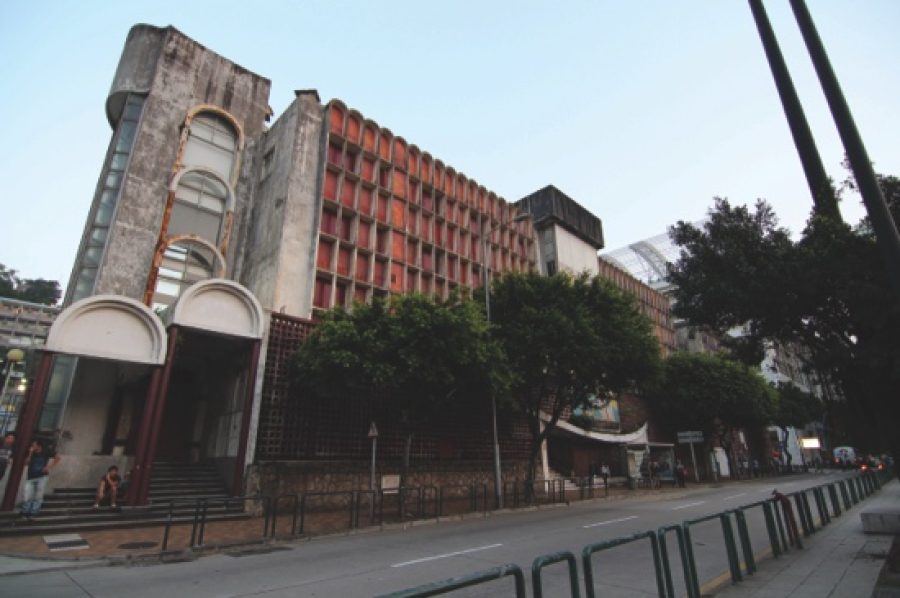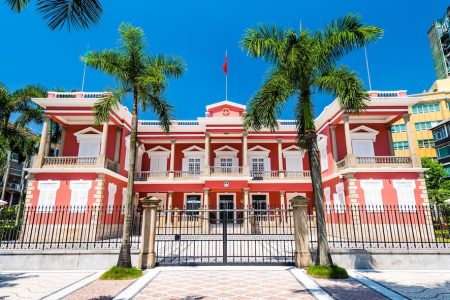e-Research & Solutions (Macau) Co. Ltd Survey Director Angus Cheong Weng Hin said yesterday that based on two separate surveys conducted by his firm last year, 82.7 percent of the respondents supported the government’s plan to redevelop Hotel Estoril, but 81.5 percent were undecided about whether to preserve the building or not.
Cheong announced the surveys’ results during a press conference at the Macau Cultural Centre.
The fate of the dilapidated hotel, known as Ngoi Dou (“Love Metropolis”) in Cantonese, became a hot-button issue after Secretary for Social Affairs and Culture Alexis Tam Chon Weng announced in April last year the government’s plan to turn the property into a youth activities centre and the nearby Praça do Tap Seac into the city’s art hub.
Tam later announced that the Estoril Swimming Pool, one of the city’s few open-air swimming pools, would be transformed into an all-season swimming pool with a retractable roof.
Hotel Estoril, which featured the first casino with western-style games of luck in Macau, was built by the then-casino monopoly STDM in the early 1960s. It was repossessed by the government after Hotel Lisboa opened in the early 1970s. It has been left to rot for over two decades.
Public opinion regarding the fate of the five-decade-old building appears to be starkly divided, with those supporting the preservation of the building and those who agree that it should be demolished to make space for a new edifice. Others have called for the building’s redevelopment, but only if the hotel’s iconic façade including its mosaic depicting a scantily-clad woman remains intact.
A local urban-planning advocacy group petitioned the government in late September for the property to be entered into the government’s cultural heritage revaluation process, and to add it to the heritage protection list if the result ruled the building worthy of cultural heritage status. The Cultural Affairs Bureau (IC) has since begun the process. According to Tam, the process, which would involve inviting experts and academics from overseas, could take up to a year to complete.
According to Cheong yesterday, his firm conducted two surveys regarding the casino-hotel and its swimming pool. He said the first one was conducted between April and September last year, gathering opinions from 818 people through a variety of methods, with 67.7 percent through an online survey conducted by the government.
The second survey, Cheong said, was held between mid-October and early-November, speaking to a random selection of residents above the age of 15 over the phone. 2,003 people were surveyed this way, he added.
Based on the results of the first survey, Cheong said 758 of the respondents, or 82.7 percent, supported the redevelopment of the hotel. He added that 72.8 percent didn’t think that the entire building should be preserved, with some saying they believed that the building has no cultural or historic value.
However, Cheong also said the 19.6 percent opposed to the demolition of the building said they believed the building has its historic value, or that it is a one-of-a-kind building in Macau.
Cheong said the result wasn’t dissimilar in the second survey, which showed that 68.6 percent supported the government’s proposal. However, when asked about their opinion on whether or not it should be preserved, 81.5 percent said that they were undecided on the issue, with only 12.3 percent supporting its demolition.
(macaunews/macaupost)






